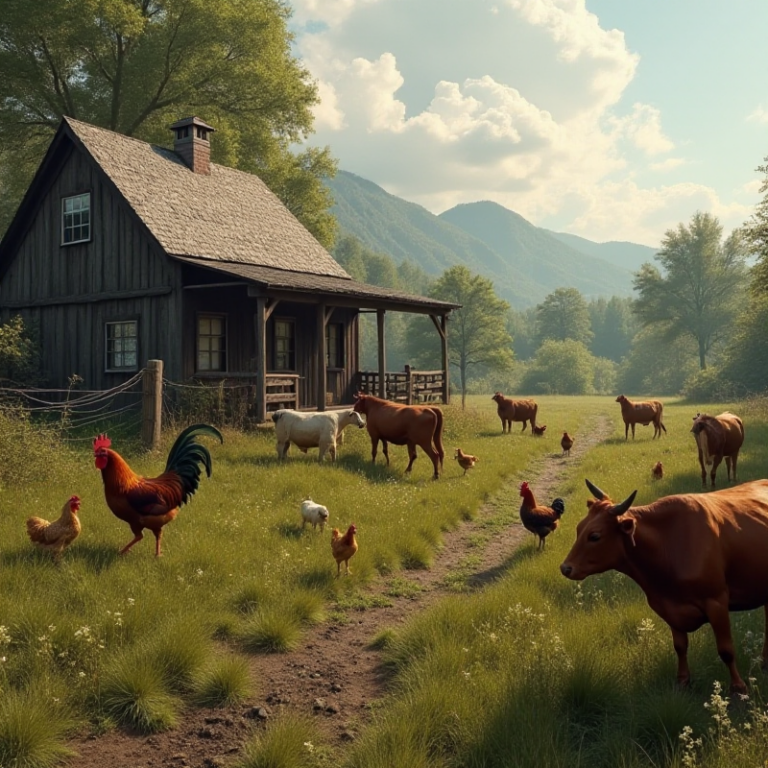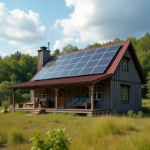Raising livestock is one of the smartest steps you can take to build a resilient, self-sufficient lifestyle. Whether you’re a seasoned prepper or just starting your journey to self-reliance, livestock can provide a steady source of food, materials, and even income. In this guide, we’ll explore the benefits of keeping livestock, choosing the right animals, and tips to ensure their care for long-term survival.
Why Raising Livestock Matters for Survival
Raising livestock offers more than just the satisfaction of working with animals—it’s a lifeline in times of uncertainty. Animals like chickens, goats, and rabbits can produce fresh eggs, milk, and meat, giving you essential nutrients that are hard to store or grow in a garden. Plus, many livestock animals are low maintenance and provide useful byproducts like manure for fertilizer and wool for clothing.
In a long-term survival scenario, your livestock becomes a renewable resource, helping you reduce dependence on outside supply chains. They also teach valuable skills, including animal husbandry and bartering, which can be invaluable in tough times.
Choosing the Right Livestock for Your Needs
Not all animals are created equal when it comes to prepping. Choosing the right ones depends on your location, available space, and survival goals.
1. Chickens: The Backyard Heroes
Chickens are an excellent choice for beginners. They’re hardy, easy to feed, and lay eggs almost daily. They also thrive in small spaces, making them ideal even for urban or suburban settings. Look for dual-purpose breeds like Rhode Island Reds, which provide both eggs and meat.
2. Goats: The Dairy Providers
Goats are versatile and great for producing milk, which can be used for drinking, cheese-making, and even soap. They’re also excellent foragers, able to survive on less-than-ideal pasture. Nigerian Dwarfs and Nubians are popular choices for dairy production.
3. Rabbits: The Compact Meat Source
Rabbits are a fantastic option for small spaces. They reproduce quickly, require minimal space, and their meat is lean and nutritious. Plus, their manure is a super-compost, perfect for enriching your garden soil.
4. Larger Livestock: Cows, Sheep, and Pigs
If you have more land and resources, consider larger animals like cows for milk and beef, sheep for wool and meat, or pigs for pork. While they require more space and care, the payoff in terms of food security is significant.
Essential Tips for Raising Livestock
Success with livestock comes down to preparation and care. Here are some critical considerations to keep your animals healthy and productive:
1. Secure Housing and Fencing
Livestock need safe, sturdy shelters to protect them from predators and harsh weather. Good fencing is essential, especially for goats and pigs, which are known escape artists.
2. Food and Water Supply
A consistent supply of clean water and nutritious feed is vital. Stockpile grain, hay, or other feed sources, and consider planting pasture crops for grazing animals.
3. Health and Veterinary Care
Learn basic animal first aid and keep a kit on hand. Regularly check for signs of illness or injury. Vaccinations and deworming schedules should be maintained to prevent disease outbreaks.
4. Breeding and Sustainability
If your goal is long-term survival, plan for breeding to replenish your stock. Learn about the breeding cycles and care requirements for your chosen animals.
Building a Self-Sufficient System
Integrating livestock into your homestead can enhance your overall self-sufficiency. For example, chickens can help control pests in your garden, while goats can clear brush from your land. Manure from livestock can enrich your soil, creating a closed-loop system that reduces waste and increases productivity.
The Path to Resilience
Raising livestock is an empowering step toward independence and resilience. These animals not only provide sustenance but also bring a sense of purpose and responsibility. Start small, learn as you go, and soon you’ll have a thriving homestead that supports you and your family no matter what the future holds.



